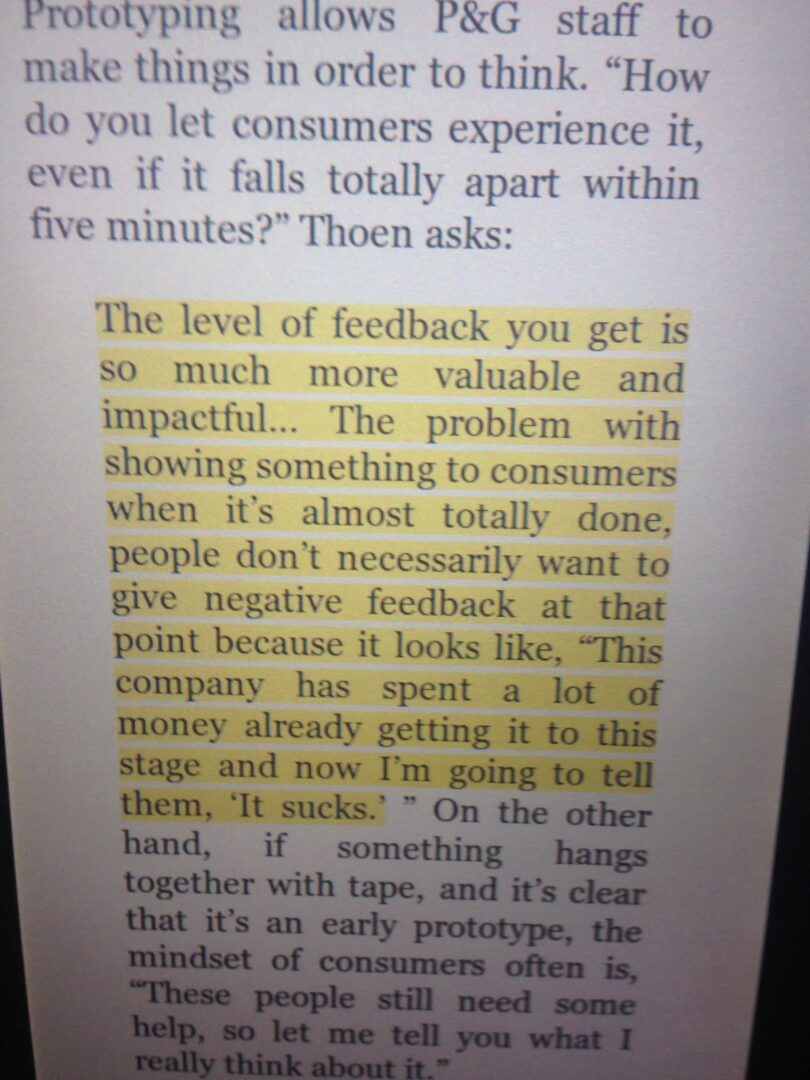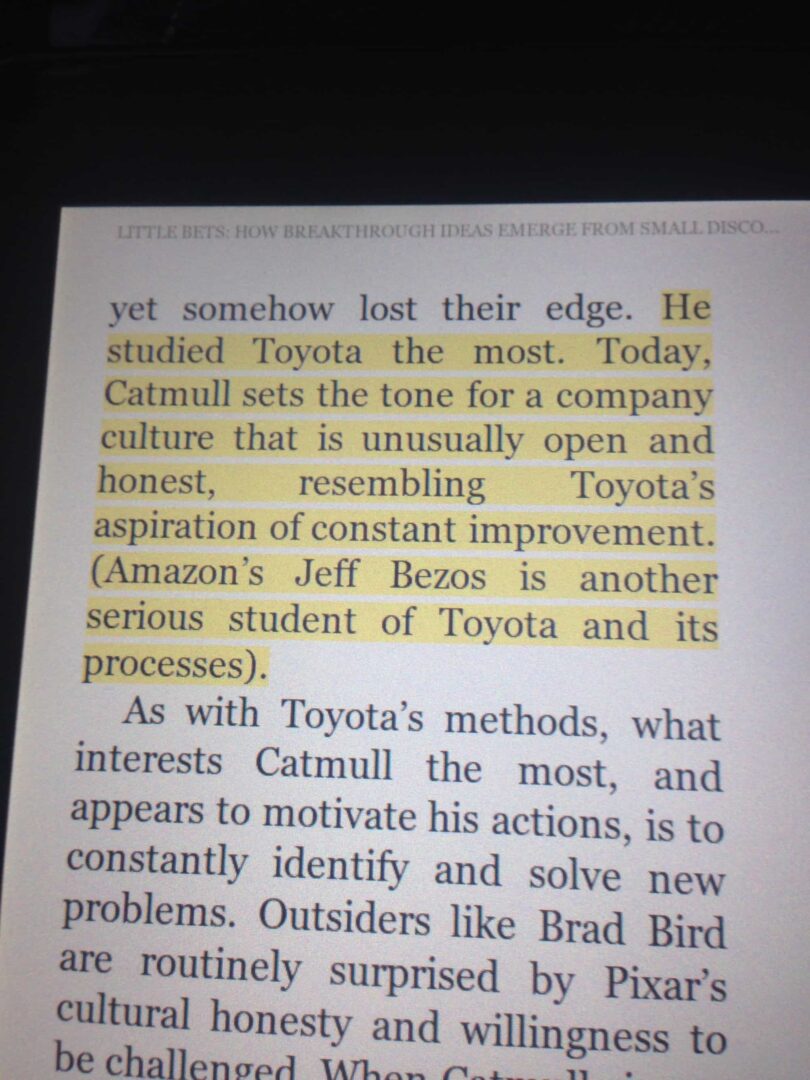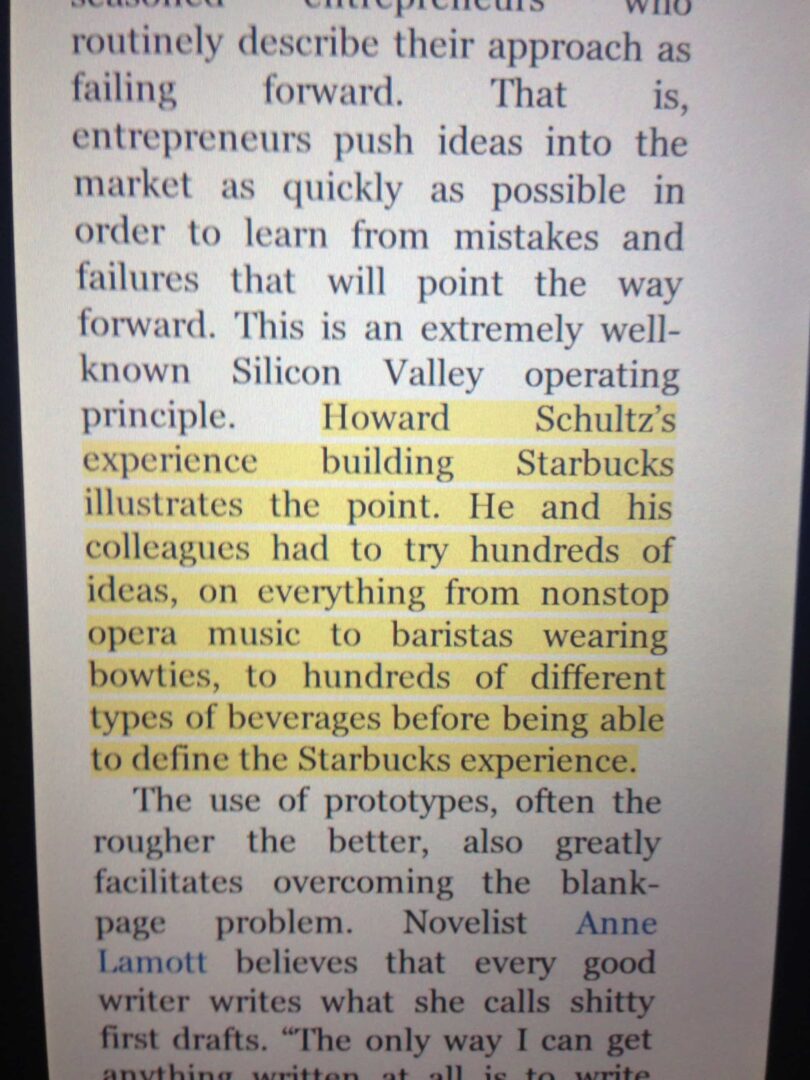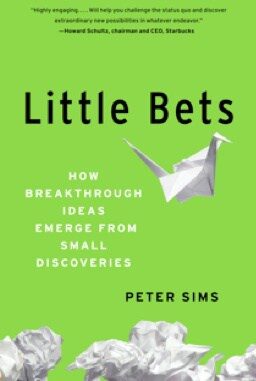
I've recently been reading an enjoyable book by Peter Sims, Little Bets: How Breakthrough Ideas Emerge from Small Discoveries.
The practice of Kaizen, of course, brings lots of small improvements. But, it's often surprising how breakthrough ideas with a really impact come out of the process of identifying, exploring, implementing, and tweaking relatively small ideas. Read what I saw a Japanese hospital CEO say about this in a post from last year.
I'm not done with the book yet, but I wanted to share a few tidbits and things that stood out to me.
Reminiscent of the Lean Startup approach to iterative product and business design (although the book doesn't refer to the term):
I had learned that most successful entrepreneurs don't begin with brilliant ideas — they discover them.
Even old HP is held up as an example of a Lean Startup type company:
For many years, when Bill Hewlett and Dave Packard led HP, the company never did traditional market research. Instead, HP got most of its ideas for new products by informally observing or talking with customers to identify problems and needs.
There's a story in the book about an early calculator design and there was uncertainty about whether it could succeed in the market. They said, “Why don't we build a thousand and see what happens?” It was an affordable bet.” Rather than having the perfectly known and predictable answer determined in advance, the book advocates doing small bets that are affordable – sort of like building a “minimum viable product” in Lean Startup terms.
Along those lines, I think it's interesting that a company (like P&G) gets more accurate customer feedback when they show an ugly, early prototype as opposed to something too polished:

We know Amazon has a strong customer-focused culture that practices process improvement:
Amazon's culture breathes experimentation. Employees there are encouraged to constantly try things and develop new ideas.

And, hearkening back to the Lean Startup, here's what happens when Amazon develops a feature that you think is cool, but customers don't want (in this case, a feature that would allow you to compare your purchase history with others to find the ONE person most similar to you):
“No one used it,” [CEO] Bezos has said. “Our history is full of things like that, where we came up with an innovation that we thought was really cool,
Starbucks and its CEO Howard Schultz didn't have everything figured out from day one – they ran a number of experiments and adjusted over time. Hopefully, that experimental DNA is helping Starbucks as they incorporate Lean and Kaizen into their stores.

The book talks a lot about the need to fail (as long as we are learning from that failure):
“The type of creativity that is more interesting to Galenson, and that is far more common, is experimental innovation. These creators use experimental, iterative, trial-and-error approaches to gradually build up to breakthroughs. Experimental innovators must be persistent and willing to accept failure and setbacks as they work toward their goals.”
And a criticism of Frederick Taylor's “scientific management” pops up as an example of management practices that stifle creativity:
“…organizational management has been developing methods for increasing productivity and minimizing risk and errors that tend to stifle creative experimentation. The predominant approach to management that evolved during the industrial era, known as scientific management, broke jobs down into specific, sequential tasks, which could then be allocated appropriate times for completion in order to optimize efficiency.
Hierarchical organizations with centralized top-down decision making facilitated this process and became the norm… But the emphasis on linear systems, top-down control, relentless efficiency and eradicating failure left little room for creative discovery and trial and error.
A writer is quoted as talking about the need to write a really bad first draft as a necessary part of the writing process (and then improving) rather than assuming you will write it right the first time. I agree that a book should be an iterative process. Not that I'm comparing myself and my books to John Lasseter and Pixar, but I've said a similar thing about my books:
“We don't actually finish our films, we release them.”
I guess the same is true for blog posts :-)
What do you think? Please scroll down (or click) to post a comment. Or please share the post with your thoughts on LinkedIn – and follow me or connect with me there.
Did you like this post? Make sure you don't miss a post or podcast — Subscribe to get notified about posts via email daily or weekly.
Check out my latest book, The Mistakes That Make Us: Cultivating a Culture of Learning and Innovation:










